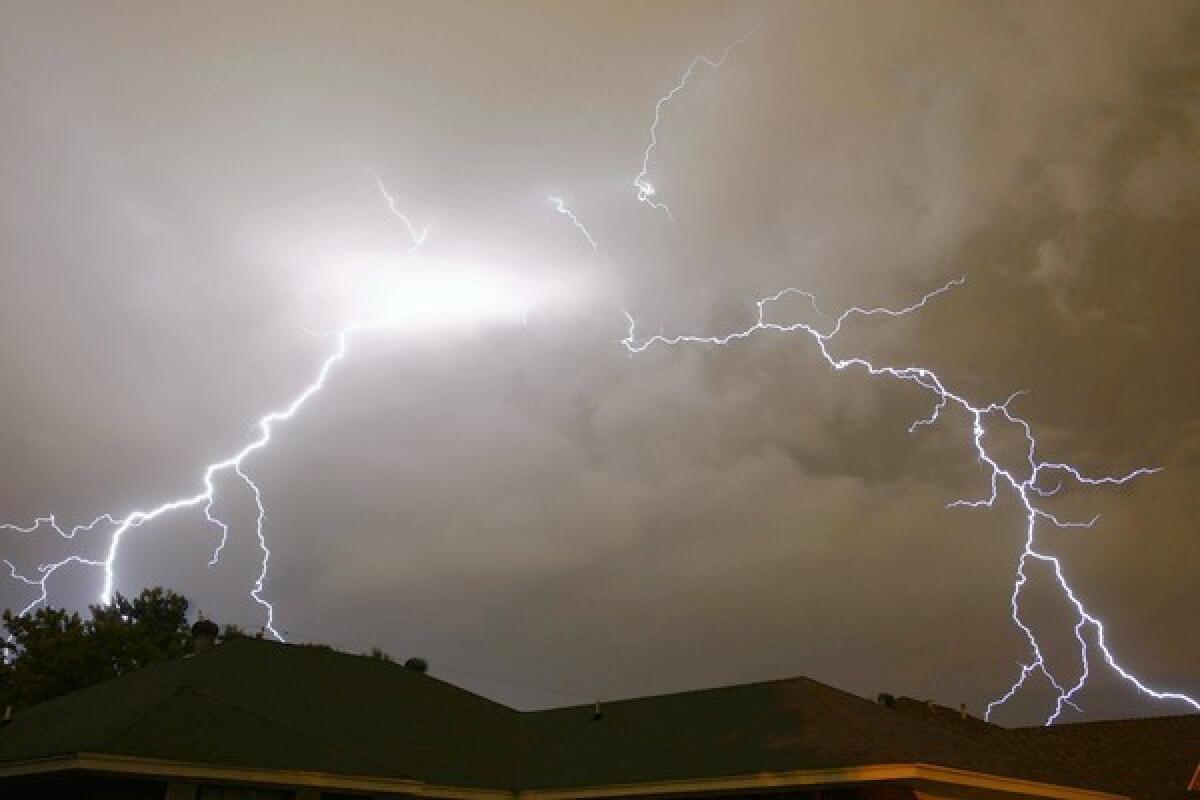Discoveries

Lightning
Jean Echenoz, translated from the French by Linda Coverdale
New Press: 142 pp., $19.95
Gregor, Echenoz’s character based on the life of Nikola Tesla, the eccentric Serbian inventor, is born as a bolt of lightning sets the surrounding forest on fire.
From that point on, his life moves in bolts and flashes. He swallows his education whole, excelling at everything and, with a pocket full of diplomas, heads for the United States to work with Thomas Edison at the Edison Electric Co. There, Gregor develops the alternating current, disagrees with Edison over its relevance and finds himself looking for a job.
He goes to work for Westinghouse, where he invents the motor, the generator, the transformer, the turbine. He is a trusting man and does not care about money, and sure enough Mr. Westinghouse cheats him out of his rightful share. He moves from his rooms at the Waldorf Hotel, to the St. Regis, to an attic room in the New Yorker Hotel, where he cares for his beloved pigeons and measures time in 33-minute intervals. He lives with an obsessive fear of microbes. But still, he discovers : the particle beam, or “death ray.” He lives on warm milk and crackers.
Echenoz captures the spare beauty of Tesla, this often-drawn and much-translated figure, till his death at 86. He is a lean ghost in the history of power, electricity and invention. Echenoz fixes him even more firmly in our imaginations.
True Things About Me
Deborah Kay Davies
Faber & Faber: 224 pp., $14 paper
A perfectly tidy, well-constructed life—complete with job, friends, parents and house slides into the gutter. It’s as if she’d been turned inside out: “I stood in front of the mirror and let my robe fall off my shoulders. Would you look at yourself, I said to my reflection in a take-the-piss Irish accent. My face was the same, but not the same.” It’s a Kafkaesque moment that stretches out for months, brought on by up-against-the-wall sex with a stranger in an underground garage. She becomes unhinged: “For goddy God’s sake. I sat on the loo with the lid down and started to laugh.”
She finds herself pursuing a relationship with the stranger. Words that used to make sense no longer make sense: “‘Juncture?’ I said. ‘Juncture?’ What sort of poncey word is that?” She has strange, Titanic dreams. His friends and children use her house. He uses her. She likes it, until she stops liking it. Deborah Kay Davies follows the descent, which gets less and less funny.
It’s an airy book, full of wonderful spaces. Why can’t she stop herself? Is her life so worthless? It’s the narrator’s insouciance that draws us in, but something darker keeps us reading. We all know how fragile our lives are. You close the book and are relieved that her descent is not your own.
The Seamstress and the Wind
César Aira, translated from the Spanish by Rosalie Knecht
New Directions: 132 pp., $12.95 paper
In Chapter 1 of this magical book, César Aira, a prolific and popular author in his native Argentina, spells out his intentions. He sits in a Paris cafe and dreams of the novel he has always wanted to write. Aira knows who his characters will be: “The heroine has to be a seamstress … and the wind her antagonist.”
And we’re off, in a play within a play, a novel within a novel, blown by the wind to a small town south of Buenos Aires, where Delia Siffoni, seamstress and madwoman, is driven further mad by the disappearance of her 7-year-old son. Delia is sewing a wedding dress for an art teacher when her boy disappears. She grabs the billowing fabric, calls a taxi and wants to be driven to the place where she believes a local trucker has taken her boy. When her husband gets home, he follows her in his red truck. A mysterious stranger follows in a small blue car. “A man has a very precise and detailed premonition of three or four events that will happen in the immediate future all linked together,” Aira explains, unfolding the story sitting at the cafe on the Place de Clichy, like a present he has carried with him for years.
Salter Reynolds is a Los Angeles writer.
More to Read
Sign up for our Book Club newsletter
Get the latest news, events and more from the Los Angeles Times Book Club, and help us get L.A. reading and talking.
You may occasionally receive promotional content from the Los Angeles Times.






